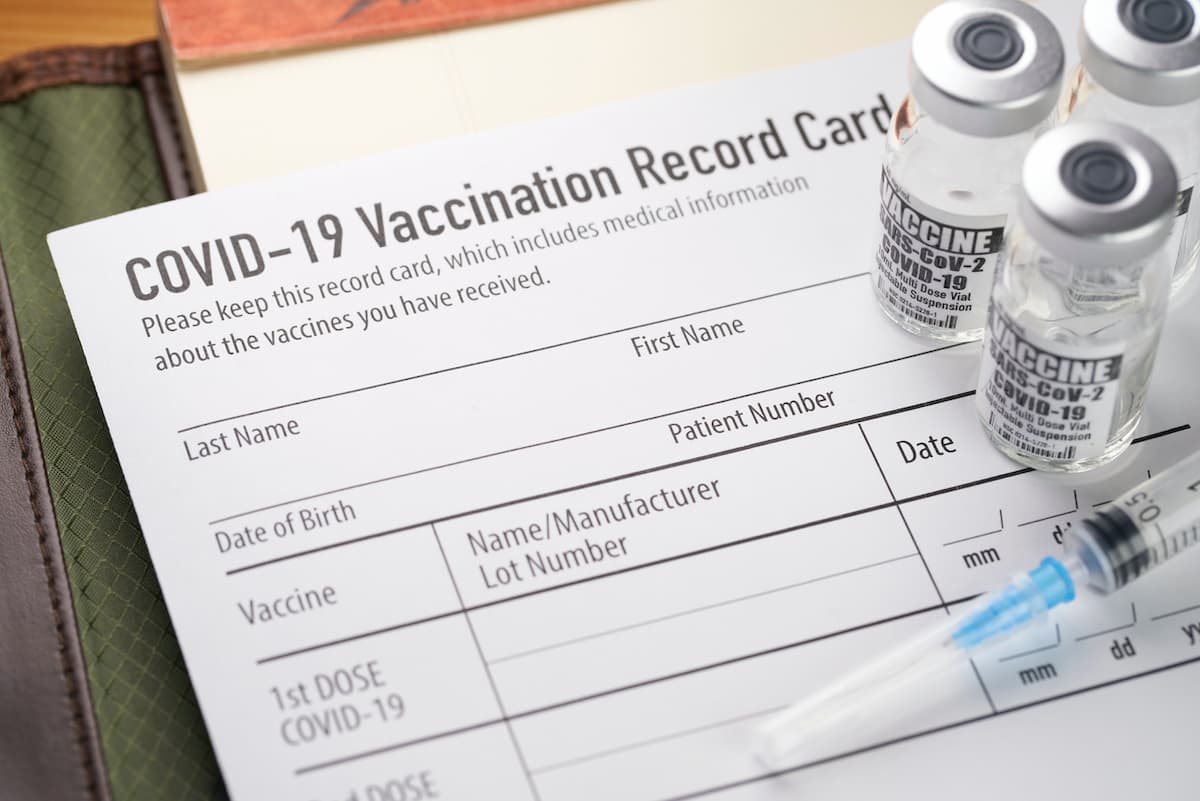
Written by
Lauren Brown
Lauren is an aPHR®-certified member of the Marketing team at Bernard Health. She writes about healthcare insights, employment law, and HR solutions.
Unvaccinated Employees Could Face Insurance Surcharges

Employees who do not receive the COVID-19 vaccine could face an increase in their health insurance costs, according to Forbes and the National Law Review. As Delta variant cases surge across the country, employers have implemented policies to protect employees, such as incentivizing or mandating vaccination for current employees and including vaccinations as a requirement in job postings.
What should employers know about insurance surcharges for unvaccinated employees?
What is the Story?
Some employers are considering an additional insurance surcharge for unvaccinated employees, according to Forbes and health benefits consultancy Mercer. The surcharge could be anywhere from $20 to $50, and according to Mercer, it is intended to encourage employees to receive the vaccine voluntarily.
The National Law Review notes that the policy would likely mirror similar surcharges for tobacco users who don’t participate in smoking cessation programs. Forbes explains that—aside from the obvious public health reasons to encourage vaccination—COVID-19 can lead to extremely high costs for both the employer and the employee since infection can cause serious illness and hospitalization. Like smoking, being unvaccinated could expose employees to greater health risks.
Mercer added, “If the employer is involved with vaccination, or contracts with a third party to provide the vaccine to employees, the surcharge must not be so substantial as to be ‘coercive,’ and consideration must be given to providing accommodation to those who are unable to get vaccinated due to a disability or sincerely-held religious belief.”
How are Organizations Responding to the Delta Variant?
As more contagious variants of coronavirus spread in the United States, some large employers have already delayed return-to-office dates. For example, Apple said that it would postpone its return to the office from September to October 2021 due to the surge in COVID-19 variant cases.
Some private employers have taken more stringent measures. On July 28, 2021, Google and Facebook both announced that all employees must be vaccinated if they wish to work in person. Other companies, including Lyft and Netflix, have already implemented stricter requirements for in-person employees.
One day later, the White House announced that Federal workers and contractors are now required to be vaccinated against COVID-19 as a condition of employment. Individuals who don’t provide proof of vaccination or get vaccinated will be required to submit to ongoing testing requirements as an additional safety precaution. New York City, New York State, and California have all implemented similar requirements as well for local and state employees.
Employees of Delta Air Lines Under Increasing Pressure to Get Vaccinated
Beginning on September 12, unvaccinated employees of the commercial airline giant will be required to follow strict guidelines:
- Delta Air Lines has stated that any employee who is unvaccinated will be required to immediately wear a mask when indoors, and be subjected to weekly coronavirus tests.
- Come September 30, those employees who are still unvaccinated will no longer be safe from losing pay should they miss work due to a coronavirus infection.
- And starting November 1, employees who remain unvaccinated will be required to pay an additional $200 each month in order to remain on Delta Air Line’s health care plan.
- Delta Air Lines claims that all of their employees who have been hospitalized due to the B.1.617.2 variant, were not vaccinated. The extra charges against unvaccinated employees are necessary, they say, to handle the financial stress that unvaccinated employees place on the company.
Are There Compliance Concerns About Surcharges for Unvaccinated Employees?
Implementing insurance surcharges for unvaccinated employees is complex, and employers are still waiting on more guidance from the Equal Employment Opportunities Commission (EEOC).
The EEOC previously provided guidance related to vaccine incentives, saying; employers are legally allowed to offer incentives to employees for voluntarily providing proof of vaccination.
Additionally, employers who are administering vaccines to their team members can offer incentives, but the incentives cannot be coercive. It’s important to note that employers must keep information regarding employees and their vaccinations confidential.
The EEOC confirmed, “Requesting documentation or other confirmation showing that an employee received a COVID-19 vaccination in the community is not a disability-related inquiry covered by the ADA.”

Written by
Lauren Brown
Lauren is an aPHR®-certified member of the Marketing team at Bernard Health. She writes about healthcare insights, employment law, and HR solutions.
Related Posts
FSAs and HSAs can get tricky within a family. While HR should never provide employees...
Yes, you can use a health savings account, or HSA, for cosmetic surgery, but only in...
If you work at an SMB without mental health support resources, you may feel limited in...
As an HR Party of One, you know that working doesn’t always feel like a party– especially...







Submit a Comment